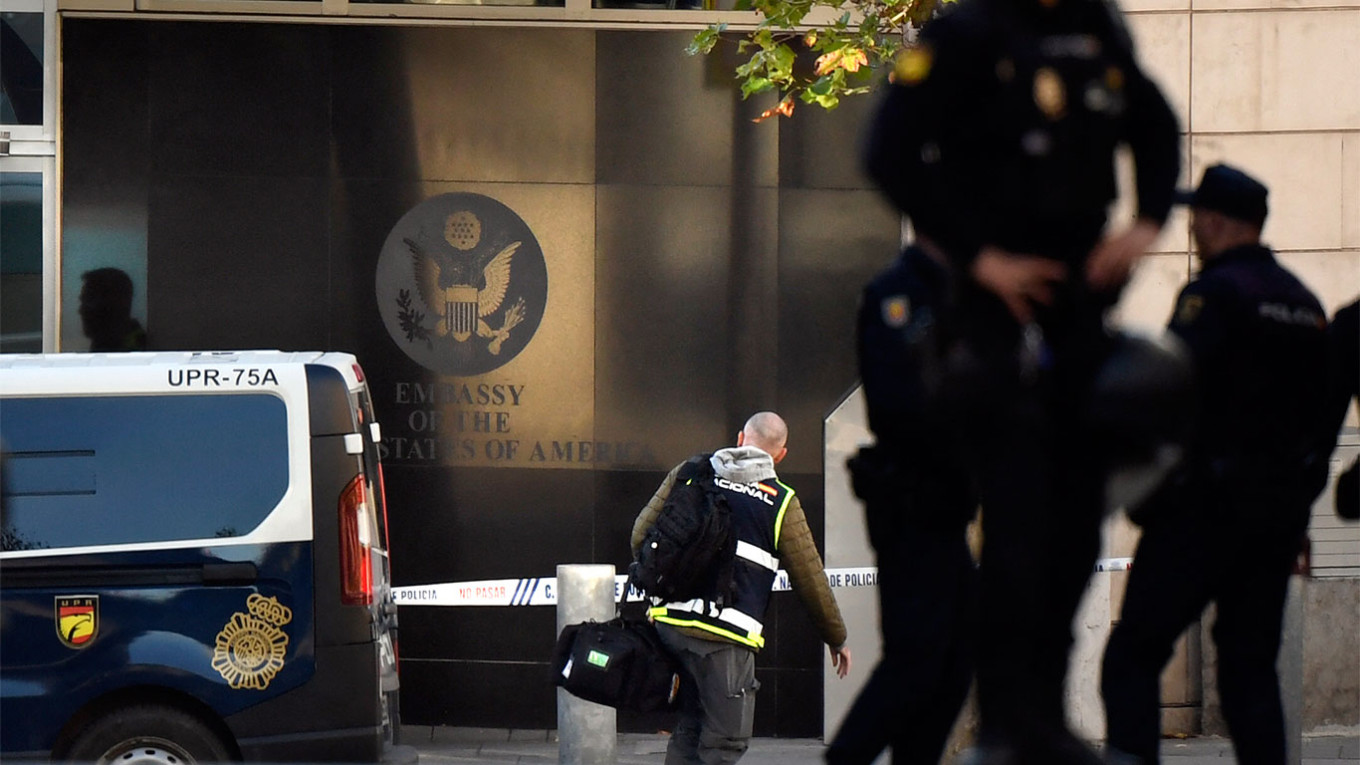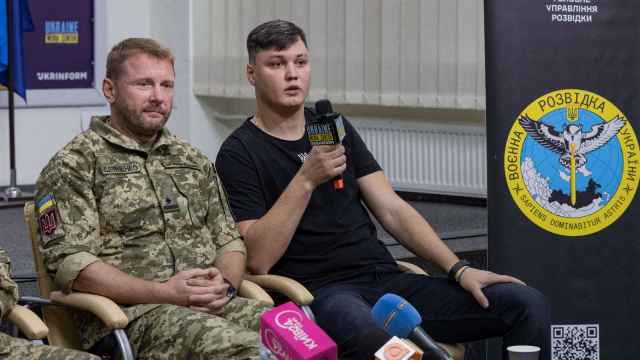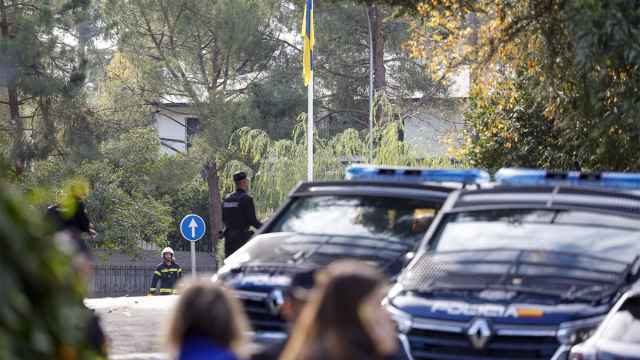Spanish police arrested a pensioner Wednesday on suspicion he sent letter bombs targeting the prime minister and the Ukrainian embassy, authorities said.
The 74-year-old Spanish citizen was taken into custody in Miranda de Ebro in northern Spain with investigators searching his home where he was thought to have made six letter bombs, police and the interior ministry said.
Masked police stood on guard outside the property as officers with sniffer dogs searched the interior, Spanish TV footage showed.
"This person was very active on social networks and according to National Police investigators, he has technical and computer expertise," an interior ministry statement said.
"Although it is presumed that the detainee made and sent the explosive devices alone, the police do not rule out the participation or influence of other people."
Nobody was killed by the six letter bombs sent in late November and early December to various sites in Spain, but a Ukrainian embassy employee was lightly injured while opening one of the packages.
Letters were sent to the official residence of Prime Minister Pedro Sanchez, to Spain's defense ministry and to an air base near Madrid from which Spain has sent weapons to Ukraine.
Also targeted was a military equipment firm in the northeastern city of Zaragoza which makes grenade launchers that Spain has sent to Ukraine.
After its Madrid embassy was targeted, Kyiv ramped up security at its embassies around the world.
Paramilitary training
The arrest came after a weekend report in the New York Times which said Russian military intelligence officers had "directed" associates of a white supremacist militant group based in Russia to carry out the campaign in Spain.
US officials told the newspaper that the Russian officers who directed the campaign appeared intent on "keeping European governments off guard" and "may be testing out proxy groups in the event Moscow decides to escalate a conflict."
Investigators suspect the Russian Imperial Movement (RIM), a radical group with members and associates across Europe, is behind the letter bomb campaign.
The group — which is designated a global terrorist organization by the United States — is believed to have ties to Russian intelligence agencies.
"Important members of the group have been in Spain, and the police there have tracked its ties with far-right Spanish organizations," the newspaper said.
According to Stanford University's Center for International Security and Cooperation, RIM "maintains contacts with neo-Nazi and white supremacist groups across Europe."
"The group has provided paramilitary training to Russian nationals and members of like-minded organizations from other countries at its facilities in St. Petersburg," it added.
'Terrorist methods'
After the embassy attack, Ukraine's ambassador to Spain, Serhii Pohoreltsev, appeared to point the finger at Russia.
"We are well aware of the terrorist methods of the aggressor country," he told Spanish public television on Nov. 30 just hours after the incident.
Russia's Embassy to Spain condemned the letter bomb campaign.
After congratulating police on the arrest, Interior Minister Fernando Grande-Marlaska said investigators were "looking at all possibilities."
Private television La Sexta, which first broke the news of the pensioner's arrest, said the suspect was a former local authority employee in Vitoria, a town in northern Spain, who lived alone.
Following the letter bomb campaign, Spain's National Court opened an investigation into "terrorism."
In addition to sending arms to Ukraine in its fight against Russia's nearly year-long war, Spain is also training Ukrainian troops as part of a European Union program and providing humanitarian aid.
A Message from The Moscow Times:
Dear readers,
We are facing unprecedented challenges. Russia's Prosecutor General's Office has designated The Moscow Times as an "undesirable" organization, criminalizing our work and putting our staff at risk of prosecution. This follows our earlier unjust labeling as a "foreign agent."
These actions are direct attempts to silence independent journalism in Russia. The authorities claim our work "discredits the decisions of the Russian leadership." We see things differently: we strive to provide accurate, unbiased reporting on Russia.
We, the journalists of The Moscow Times, refuse to be silenced. But to continue our work, we need your help.
Your support, no matter how small, makes a world of difference. If you can, please support us monthly starting from just $2. It's quick to set up, and every contribution makes a significant impact.
By supporting The Moscow Times, you're defending open, independent journalism in the face of repression. Thank you for standing with us.
Remind me later.






